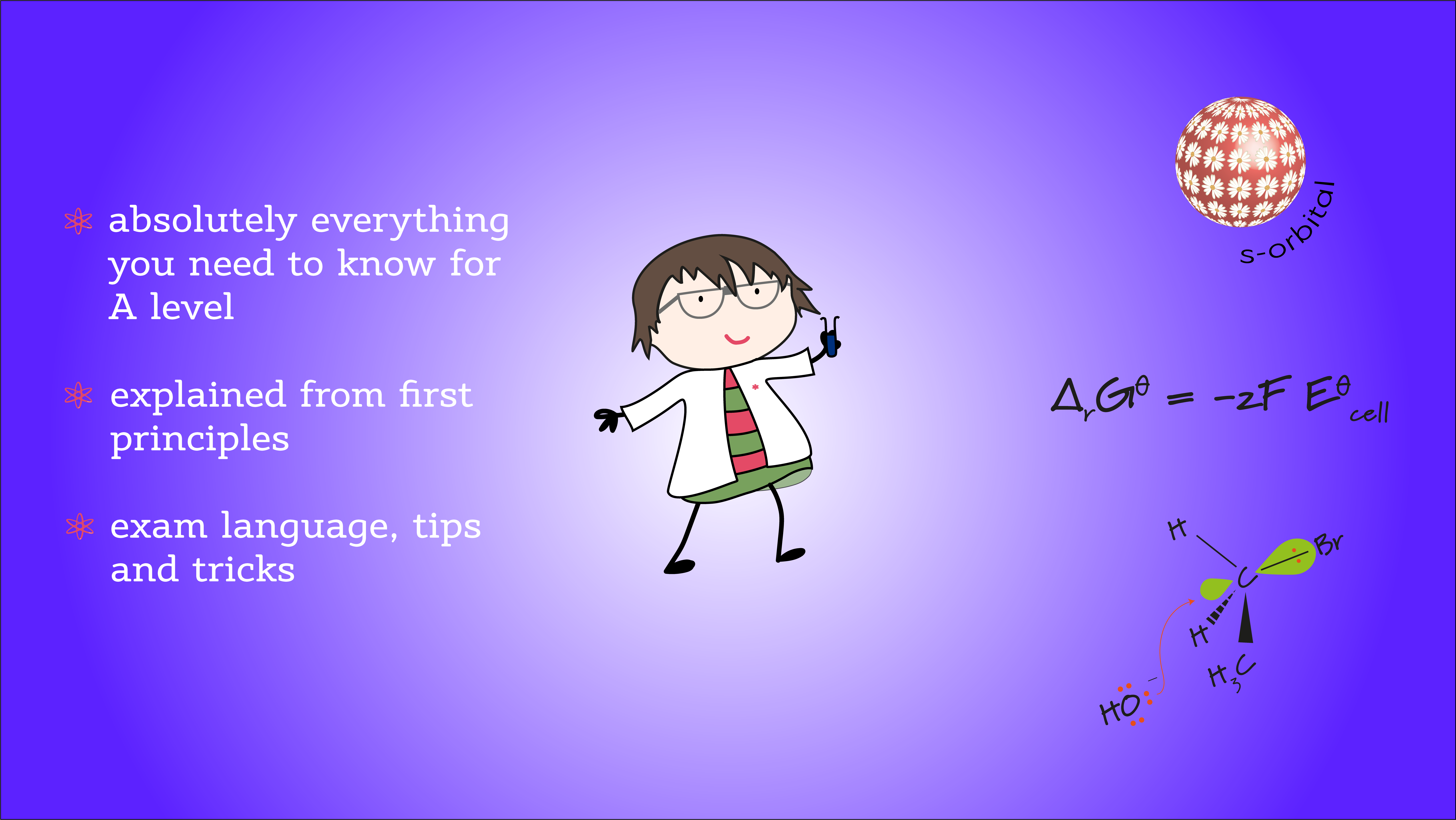Calculations for AS and A level Chemistry
Being confident in tackling different types of mole calculation is the foundation upon which much of A level chemistry stands
The ultimate A level chemistry resource

Being confident in tackling different types of mole calculation is the foundation upon which much of A level chemistry stands
This is a set of more difficult long answer exam questions that require you to use data from mass spectra,
Continue readingMixed spectra long answer exam question practice
24th NOvember 2025 Trending study hacks you should try (and a few you shouldn’t)! Powerful revision strategies and seriously effective
Our familiar model of covalent bonding is largely based on the Lewis model, with atoms sharing pairs of bonding electrons
Continue readingUsing valence bond theory to explain sigma and pi bonds
Once again, showing how covalent bonds are formed using dot and cross diagrams is simpler at A level than at
Metal atoms find it fairly easy (in terms of energy) to lose their outer-shell or valence electrons. They have a
An ionic equation describes the actual chemical reaction that occurs when we add drops of aqueous sodium chloride to a
Ionic bonding is the electrostatic attraction between oppositely charged ions – it is not the transfer of electrons from one
Mass spectrometry is a really powerful tool for helping us to piece together the structure of an organic molecule. Ionisation
Continue readingInterpreting the mass spectrum of an organic molecule
We can calculate the percentage abundances for each of the isotopes in an element if we know the mass number
Continue readingHow to calculate the relative abundance of an isotope
We know that relative atomic mass (Ar) is the average of (% abundance of an isotope x isotopic mass) for
Continue readingHow to calculate the relative atomic mass of an element from a mass spectrum
A mass spectrometer is able to very accurately determine the relative atomic mass of an element, by measuring the mass
The standard electrode potential for a half cell means exactly that – everything happening under standard conditions (298K, 100 kPa,
Continue readingUsing the Nernst equation to calculate the electrode potential of a half cell